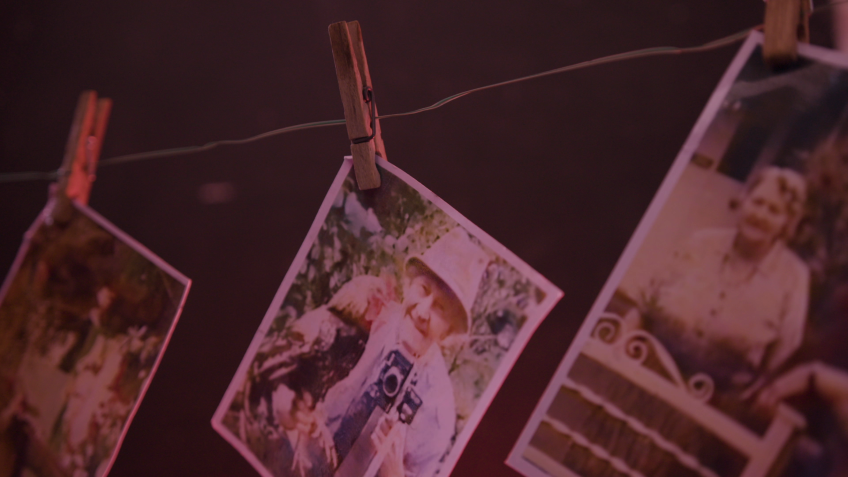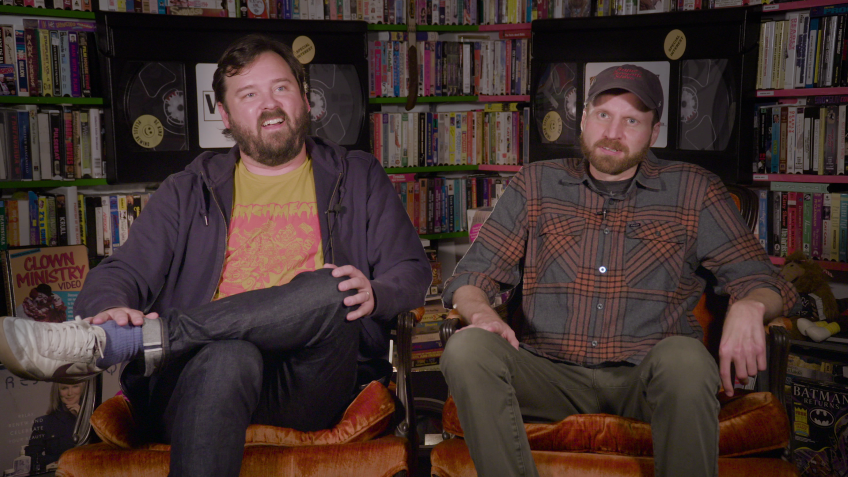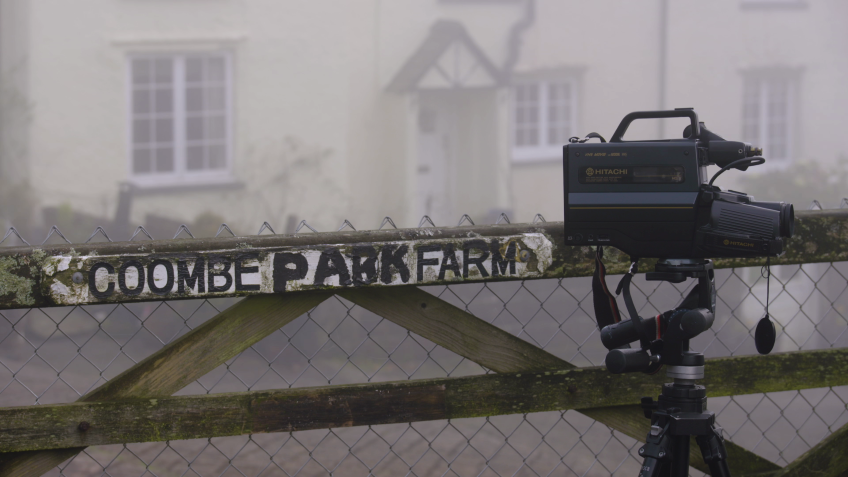Joyce Glasser reviews A Life on the Farm (September 8, 2023) Cert 12A, 75 mins.
There is a subset genre of documentaries that can be called “Russian dolls” as how the story starts out is very different from how it ends and the trajectory is unpredictable. The direction of the journey is spiralling downward, as if through Alice’s rabbit hole, into a very disturbing if sometimes absurd land. Frequently, the director goes on the journey with us. The Art Thief, Three Identical Strangers and Tickled are stellar examples. In Tickled, for instance, just as you are wondering how a film about “competitive endurance tickling” can possibly sustain itself for 92 minutes, you accompany the filmmaker on a riveting journey into the heart of darkness.
Oscar Harding’s film A Life on the Farm promises to be one of the darkest entries into this sub-genre, but it promises more than it delivers, or perhaps the promise was never sincere.
Not that it does not deliver a lot, including the existence filmmaker that some might judge to be an unsung hero: footage from 70-something-year-old farmer Charles Carson’s weird amateur film; testimonials from people who knew the late Somerset farmer, and a commentary from a psychiatrist too general to be useful. But Oscar Harding takes us on a journey that is more circular than downward, leaving us less enlightened about the strange, and perhaps tragic, life of Carson than we would like.

The film begins with excerpts from the home made films (or film) that the self-taught filmmaker distributed to various people and film competitions during his lifetime, and that were left behind when he died. The duo behind the Found Footage Festival tell us, ‘we’ve been collecting weird VHS tapes since 1991 and by far this is the weirdest one we’ve seen’, and then wonder ‘if he’s a genius or a psychopath?’ That statement sets the bar high. We expect something sinister and the first half of the film sustains this anticipatory expectation with a series of creepy scenes.
Harding’s grandparents moved to Huish Champflower in Somerset near a village called Wiveliscombe where their neighbour (neighbours were typically a ten-minute drive away) was Charles Carson. He gave them a feature length home movie he had made. When John died, one of Oscar Harding’s aunts found a videotape with Charles Carson’s name and address and the words “copyright protected.”
The director, Oscar Harding, saw the tape when he was ten. Shortly after a scene in which Carson is burying a dead cat under a tree while uttering, ‘I’ll put a bit of grass in here, you’ll have a lovely time,’ his father shut off the tape.
Harding saw the film again a decade later and evidently decided to give Carson the moment of fame life denied him. But who was Charles Carson and was this film a treasure or a curio?
Many talking heads combine to paint a portrait. But since we never see Carson outside of his film or see the film from start to finish, just episodic excerpts, it’s hard to form an answer to either question.
We see Carson posing in front of a trio of horses who nibble at his hat and then play at removing it; we see skeletons riding cows and machinery; and we see, in close up, the birth of twin calves, and a big close up of the placenta.
Carson tells us about his parents who lived on the farm. ‘My father lived to be 89 and my mother, 95 and they ate beef nearly every day.’

Oscar intervenes, ‘it’s all innocent and nice until we get to the point where Charles is sat down by the fireplace and talking about one of his cats.” This is where we expect the dark secrets to unfold, as we see an increasing number of creepy scenes, suggesting Carson’s loneliness and experiences of death resulted in mental illness.
The cat burial ritual is nothing compared to his father’s death scenes. Carson likes to put still images in with cartoon speech loops and in one, his dying father, holding a whisky glass says, ‘a whisky a day…’ before Carson tells us Stan never got drunk.
When his 95-year-old mother dies, he puts her in a wheelchair and wheels her out to the fields to say goodbye to the animals – with hay on her lap from which they feed. We hear Oscar say, ‘And this was the point when dad originally turned off the tape when I was a kid.’
And just when we are expecting to learn what the police found under the floorboards when they searched the house, all the many talking heads leading us in one direction, begin casting a different view of Carson.
He was a loving, unpaid carer for two parents, a lonely man who made films to keep him company and tried to get them seen; and an accomplished musician and linguist (both of which he got from his talented mother). His mother played 12 instruments and taught in the local school.
The local Reverand says, ‘eccentric as a family, but intelligent I think.’ Then, we start to feel sorry for this hardworking man, who inherited a large farm from his parents and dutifully carried on with it when he was educated and might have had a fulfilling, creative career. Who knows, he might have joined the BBC or the LSO.
That is when we learn, late in the film, that he had a wife who predeceased him (we learn nothing about children, which is curious). We see her smiling by the fireside, toasting with a sherry that Carson brings to her. But we learn from a cousin that she was at his house, in the north of England, when she died. Apparently she visited often. With ‘friend and neighbour’ adding, there was clutter everywhere: cats on the tables and chickens on the floor,’ who can blame her?
At the end, various film buffs tell us how hilarious the films are, but many will find it hard to laugh, as Carson the “actor” is a strange, somehow blank, character. For a self-taught farmer with amateur equipment and little time, Carson had talent, but the case for whether his film is more than curiosity for YouTube has not been made.




